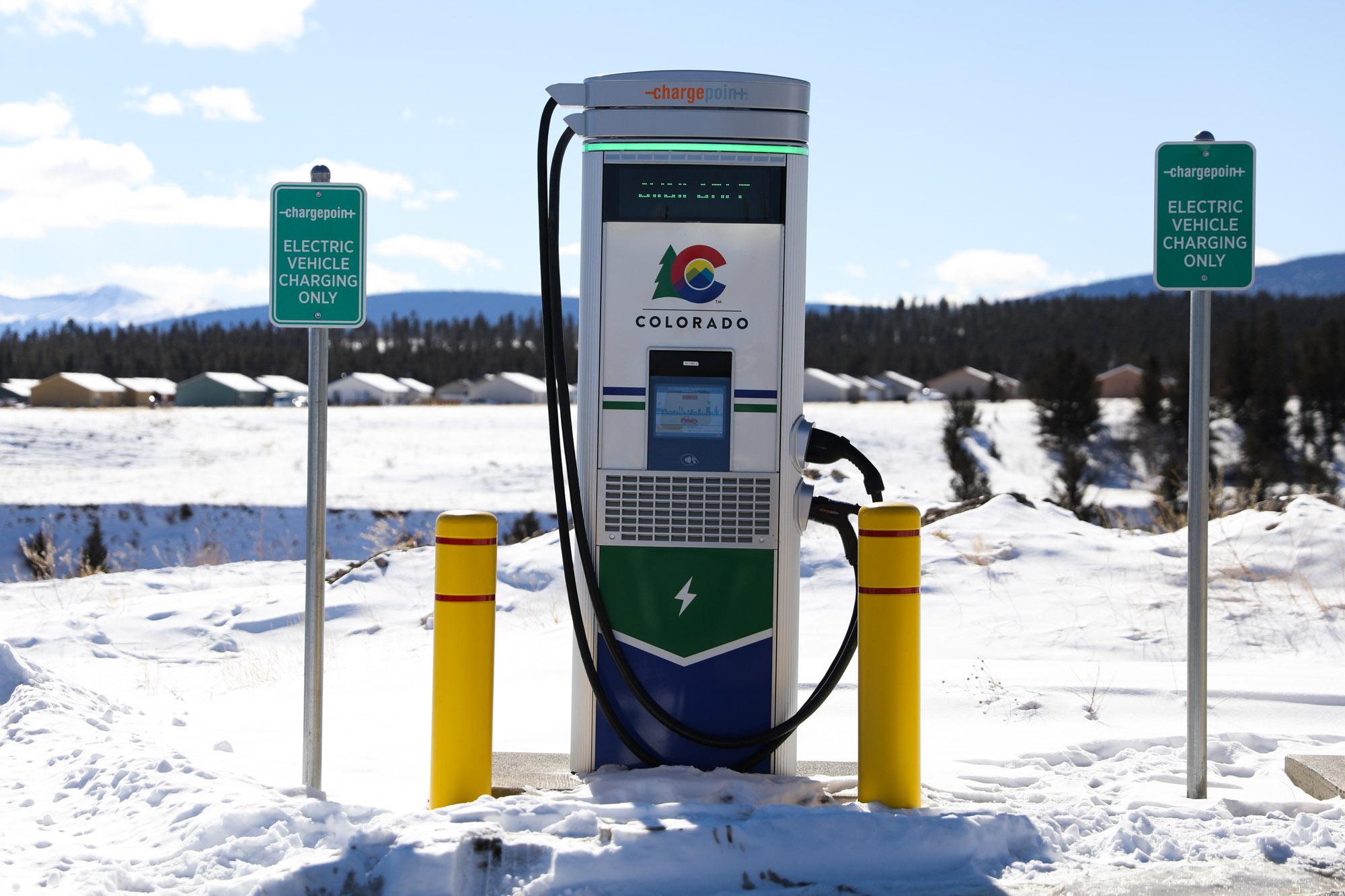
It could soon be a lot cheaper for Colorado households to ditch fossil fuels.
That’s thanks to a package of climate-related bills signed by Gov. Jared Polis on Thursday. Some of those bills — like a commitment to net-zero emissions by 2050 and new rules for investor-owned utilities — focus on the technical side of Colorado’s climate efforts. Other pieces cater to consumers by laying out plans for new tax credits and rebates.
In many cases, those discounts are designed to layer on top of incentives in the federal Inflation Reduction Act. (Here’s a good guide to those discounts). By cutting the cost to replace an old gas car or furnace, the bill aims to reduce Colorado’s climate-warming emissions and improve local air quality. Advocates for the plan say it will also protect consumers from sudden spikes in fuel prices, like the jump in energy bills and gas prices last winter.
All of those savings won’t be available right away, though. And it can sometimes be tricky to figure out how they all fit together. With that in mind, here’s a quick guide to the upcoming discounts.
Electric cars
Colorado has set a goal to put 940,000 electric vehicles on the road by 2030—far more than the roughly 80,000 plug-in vehicles currently registered. The state has made progress toward the target, but Gov. Polis has said he’s worried there’s a risk manufacturing restrictions around the federal electric vehicle credit could cool the momentum. That’s partially why lawmakers and Gov. Polis agreed to expand state incentives.
What’s coming: A $5,000 tax credit off the purchase of a battery-electric or plug-in hybrid vehicle with a suggested purchase price of less than $80,000. For cars priced under $35,000 buyers can get an additional $2,500 credit.
Who qualifies: Any Colorado resident.
When it's available: July 1, 2023 - Jan. 1, 2025. The base rebate decreases after that until 2029.
E-bikes
Denver proved the power of e-bike rebates when it launched steep discounts for residents last year. The state is now hoping to follow up on the success and, in the process, reduce car dependence.
What’s coming: The Colorado Energy Office plans to launch an e-bike rebate program for low- to moderate-income residents this summer but hasn’t detailed the size of the discounts.
Its plans for all Coloradans are clearer. Under legislation signed into law this year, the state will offer a $450 discount on e-bikes next spring. It’s available to retailers who will apply the discount at the point of sale.
Who qualifies: Any Colorado resident.
When it's available: April 1, 2024 - 2032
Heat pumps
Think of a heat pump as a dual-purpose air conditioner and home furnace. It works by moving ambient energy either into a home or out of it, which is why it is far more efficient than other electric heating options. Since natural gas currently provides heat for about two-thirds of Colorado homes and businesses, heat pumps are seen as an essential tool to reduce statewide emissions.
What’s coming: This one is a little more complicated.
Colorado currently allows taxpayers to apply for a rebate worth 10 percent rebate of the cost to install heat pump equipment. It was scheduled to expire at the end of the year, but recent legislation extends it through 2024.
The same bill also includes new incentives depending on the type of technology installed. For an air-source heat pump, a resident is eligible for a one-time $1,500 tax credit from 2024 until 2026. After that, it drops to $1,000 until 2029, then again to $500 at the end of 2032.
Another option is a ground-source heat pump, which relies on the steady temperatures of air or water in buried pipes. In that case, a resident is eligible for a $3,000 tax credit from 2024 until 2026. After that, it drops to $2,000 until 2029, then again to $1,000 at the end of 2032.
Heat pumps can also power household water heaters. In that case, a resident can apply for a $500 tax credit from 2024 until 2026. After that, it drops $250 until the end of 2032.
Who qualifies: Any Colorado resident
When it’s available: 2024-2032
Electric lawn equipment
The Front Range has violated federal standards for ozone pollution for decades. In the search for ways to tackle the problem, policymakers have taken a keen interest in phasing out gas-powered lawn equipment. That’s because leaf blowers and other hand-held lawn equipment often use high-pollution, two-stroke engines. California air regulators recently estimated running a commercial leaf blower for an hour creates as much smog-forming pollution as driving a new car from Denver to Los Angeles.
What’s coming: A 30 percent discount on electric lawnmowers, leaf blowers, trimmers and snowblowers. The tax credit is available to retailers to cut the up-front price for consumers.
Who qualifies: Any Colorado resident
When it's available: Jan. 1, 2024 - Jan. 1, 2027









